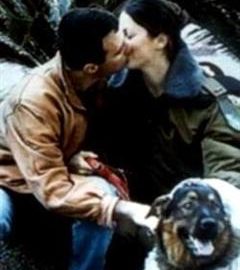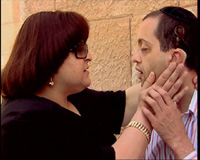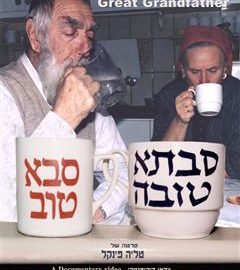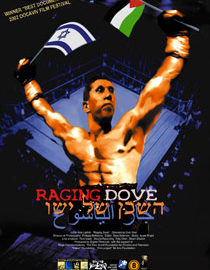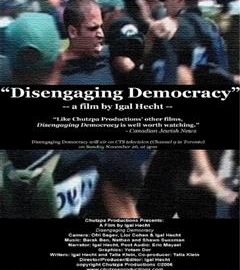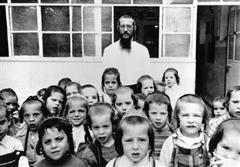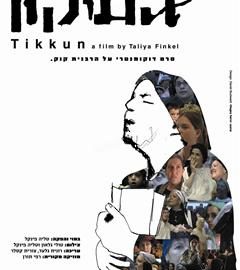Dan Katzir’s autobiographical film expresses the outcry of his generation, as it struggles to find love and privacy amidst the reality of daily terror and hate. Mr. Katzir, a former officer and paratrooper intimately reveals his loves story with Iris, a charming girl about to begin her army service. This poetic film is also an important historic document with rare and shocking footage from the era of assasinated prime minister Yitzchak Rabin.
“Did you go on a honeymoon? Honeymoon? In our dream! All our life is honey…” This is the answer orthodox grandparents give to their atheist granddaughter, the film director, who tries to understand their spiritual strength which helps them to survive despite all the difficulties they had to overcome throughout their life.
As Jewish Holocaust refugees, the lives of Batiya & Reuven Gurevitz are paved with pain and hardship. Early in their married life, they were forced to abandon everything they had because of the Nazi army’s invasion of Bessarabia at the beginning of World War II. They wandered through the former USSR, facing unbelievable poverty and local anti-Semitism.
Now, living in Israel in their senior years they face the problem of leaving the only bit of stability they were able to reach – the modest apartment they own. Despite all their troubles, they are strengthened by faith and remain devoted to the Jewish Orthodox Law.
Raging Dove tells the story of Palestinian-Israeli-American world champion boxer Johar Abu Lashin. Undefeated, he decides to defend his title – first in his hometown of Nazareth, then in Gaza, Palestine – and unwittingly orchestrates his own downfall, as the quagmire of Middle-East politics deals him the fatal blow.
Disengaging Democracy, from award winning documentary filmmaker Igal Hecht, takes a rare and provocative look at what happened to Israeli democracy before, during, and after the historical 2005 Gaza Disengagement.
This is a biography of Dr. Chaim Weizmann, the first President of Israel, incorporating film footage, sketches, and still photographs. The film begins with Dr. Weizmann’s inauguration as President and then surveys his life from childhood in Russia, to early adulthood in Germany and England, and his eventual arrival in Palestine. The documentary then discusses the rise of Hitler in Germany, the “White Paper,” the effect of World War II on European Jews and Palestine, and culminates with the proclamation of the State of Israel with footage of Truman recognizing Israel and presenting Weizmann with a Torah as a gift.
The state of Yiddish culture in Israel is examined, from socialist Bundists in Tel Aviv to the Orthodox in Jerusalem, and all the people, poets, singers, revolutionaries, journalists, and actors in between for whom Yiddish is a living language in the midst of Hebrew. The Yiddish speakers interviewed discuss their love of Yiddish language and literature and the attitude in Israel toward Yiddish. They also share stories and vignettes highlighting the incredible vitality and richness of Yiddishkeyt.
Tikkun portrays the phenomenon of the Rabbanit (the wife of a Rabbi) of Tiberius, Leah Kook; an orthodox leader supported and followed by many Israeli women. This film is a vivid picture of the routines and customs of life in an ultra-orthodox household and introduces a very charismatic, yet highly controversial main character: Rabbanit Kook, a staunch believer in a prophecy that the world refuses to hear. Such an extrovert enthusiast about her belief, the filmmaker documented her intensively for two entire years.
As the maker of the film got drawn in this world and became accepted as a member of the house herself, she could explore the inner truths of the story and get behind the scene. By watching the Rabanit at very close range, one gets an insight into the controversial attitude of the Israeli society towards Lea Kook: is she genuine or a fraud?
